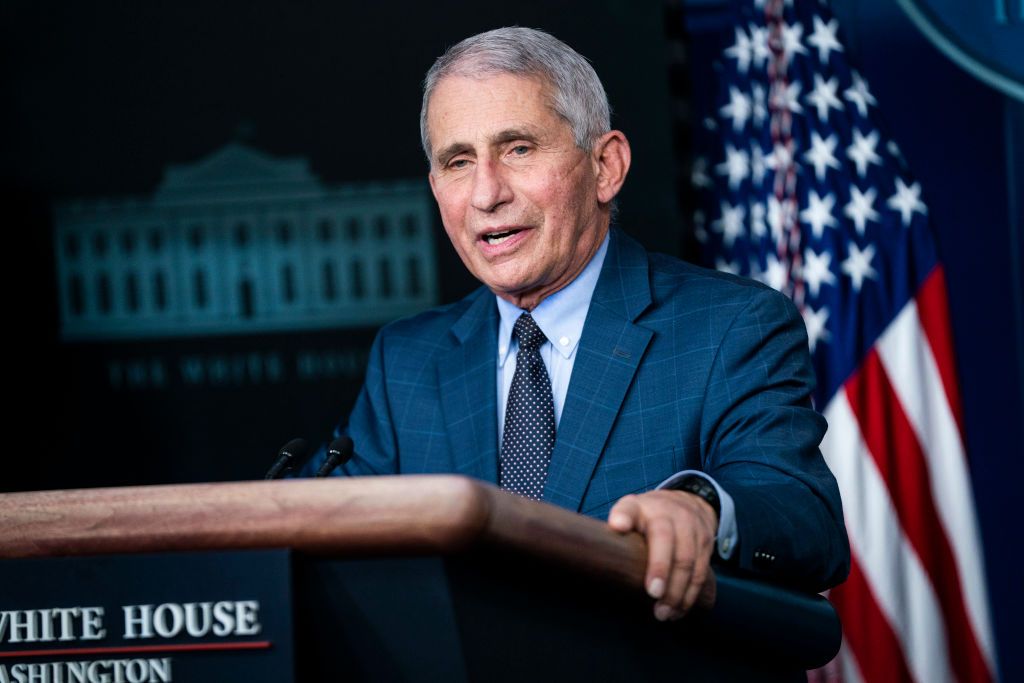Medical Experts Attempt Different Methods To Convince Black People That The COVID-19 Vaccine Is Safe
As the suspicion around the coronavirus vaccine harbored among Black community members steadies, health officials are working overtime to establish a sense of trust, broken by centuries of medical racism.
Dr. Anthony Fauci, our nation’s leading infectious disease expert is attempting to promote security by advocating that Black scientists, medical experts and researchers have led to the formation of the various vaccines, including the work of viral immunologist, Dr. Kizzmekia Corbett. Corbett has led COVID-19 research efforts since the top of the year and retains over a decade of experience in scientific research.
Cleary the hope is that if the information comes from Black people who work in the medical field and public health, the information will be more readily received.
Meet The Black Woman Taking the Lead to Develop a Vaccine For COVID-19 https://t.co/rRKdjBSTlG
— Black Enterprise (@blackenterprise) March 26, 2020
“The very vaccine that’s one of the two that has absolutely exquisite levels — 94 to 95% efficacy against clinical disease and almost 100% efficacy against serious disease that are shown to be clearly safe — that vaccine was actually developed in my institute’s vaccine research center by a team of scientists led by Dr. Barney Graham and his close colleague, Dr. Kizzmekia Corbett, or Kizzy Corbett,” Fauci said.
Thanks to @blackdoctor_org for asking this question. And, for Dr. Fauci for now making it likely impossible to enforce “Kizzmekia” cause everyone now knows he’s allowed to say “Kizzy”. Haha
https://t.co/AUsDNN7hVh pic.twitter.com/c4xIvqtLXg
— KizzyPhD (@KizzyPhD) December 10, 2020
But Fauci will have a long bridge to walk. A recent study between the NNACP and UnidosUS found that only 14 percent of Black Americans trust that the safety of the vaccine, while 18 percent believe will be effective.
And on the internet, Black entertainers and celebrities have openly voiced the community’s distrust around the vaccine, most recently hip-hop pioneer Pete Rock and “Black Panther” actress Letitia Wright.
I have a feeling this might get deleted so I screencapped it but I just wanna say… These last few years have been ROUGH on many of my heroes from the 90s. For Pete’s sake. pic.twitter.com/da58vZKFcN
— Blockhead (@BlockheadNYC) December 10, 2020
While they both received legitimate criticism for a variety of reasons, it still speaks to a common midframe shared by members of Black communities. The Tuskegee experiment and the studies based on Henrietta Lacks‘ cells without her consent still ring very loudly in the ears of Black community members who are only two or three generations removed.
Black health workers in New York City have vowed to be first in line for the vaccine, once it is formally approved by the FDA and distributed.
“Taking the vaccine is doing something that I believe in — in terms of the science, but also being able to show others that we can do this. People like you are going to take the vaccine, and you can use me as an example to see what happens. COVID devastated us, and something needs to be done to make sure this doesn’t happen again,” wrote ER physician Dr. Kaedrea Jackson, in an op-ed for the New York Daily News.
The FDA is expected to approve Pfizer’s vaccine within days, following behind the U.K. and Canada, who moved forward with approval earlier this week.
SEE ALSO:
A COVID-19 Vaccine Is Ready, But When Will Black Communities Get Access?
Public Health Experts Scramble To Convince Black People That Covid Vaccines Are Safe
[ione_media_gallery id=”4058601″ overlay=”true”]

